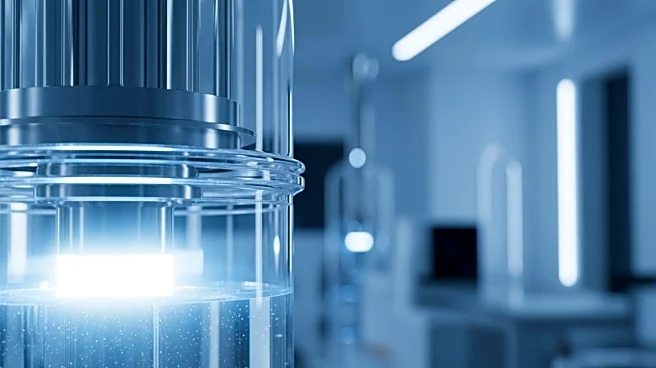What's Happening?
Satsuma Pharmaceuticals, Inc., a late-stage biopharmaceutical company, has announced the publication of favorable results from its Phase 3 ASCEND study regarding STS101, a dihydroergotamine nasal powder
designed for migraine treatment. The study, conducted at 54 sites in the United States, involved 482 patients and demonstrated that STS101 provides rapid relief from migraine symptoms, with sustained benefits over 48 hours post-dosing. Participants reported ease of use and expressed a preference for STS101 over existing migraine medications due to its faster and more consistent efficacy. The product combines Satsuma's proprietary SMART™ technology with a user-friendly nasal delivery device, offering a novel non-oral treatment option for migraine sufferers.
Why It's Important?
The publication of these results is significant as it highlights a potential breakthrough in migraine treatment, addressing the unmet needs of patients who struggle with existing therapies. STS101's rapid and enduring symptom relief could improve the quality of life for individuals suffering from acute migraines, offering a reliable alternative to oral medications that may not provide quick relief. This development is crucial for healthcare providers seeking new options to manage migraines effectively, potentially reducing the burden on patients and the healthcare system. The positive reception of STS101 by study participants underscores its potential impact on the migraine treatment landscape.
What's Next?
Following the publication of the ASCEND study results, Satsuma Pharmaceuticals may pursue further regulatory approvals and commercialization efforts for STS101. The company could engage with healthcare providers and stakeholders to promote the adoption of this novel treatment. Additionally, ongoing research and development may focus on expanding the indications for STS101 or enhancing its formulation. Stakeholders, including patients, healthcare professionals, and insurers, will likely monitor the product's market entry and its impact on migraine management strategies.
Beyond the Headlines
The introduction of STS101 could influence the broader pharmaceutical industry by encouraging innovation in drug-device combination products, particularly for conditions requiring rapid symptom relief. Ethical considerations may arise regarding the accessibility and affordability of this new treatment, prompting discussions on healthcare equity. Furthermore, the success of STS101 might inspire similar advancements in other therapeutic areas, leveraging nasal delivery systems for efficient drug administration.










